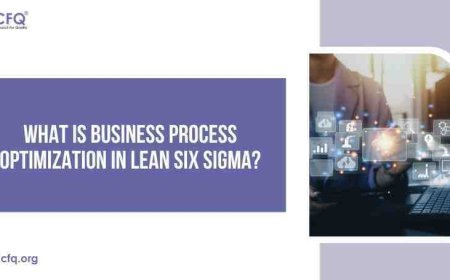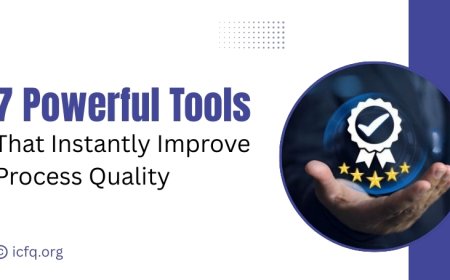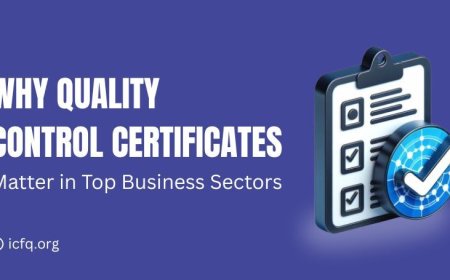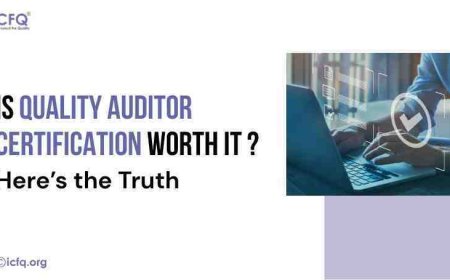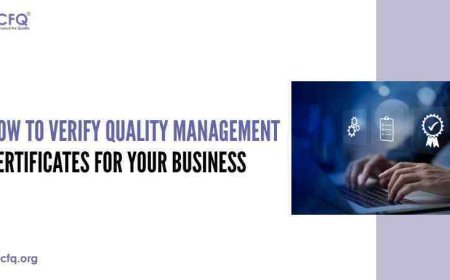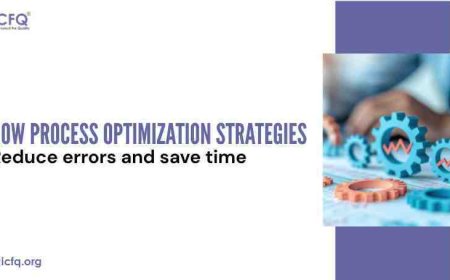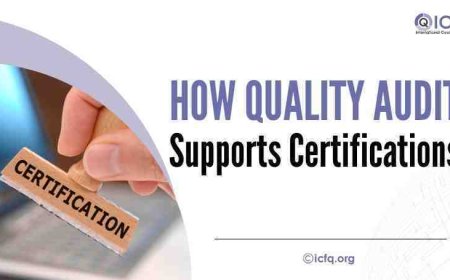Why Companies Need Operational Excellence Certification
Find out why companies need operational excellence certification to improve processes, reduce errors, and grow successfully.
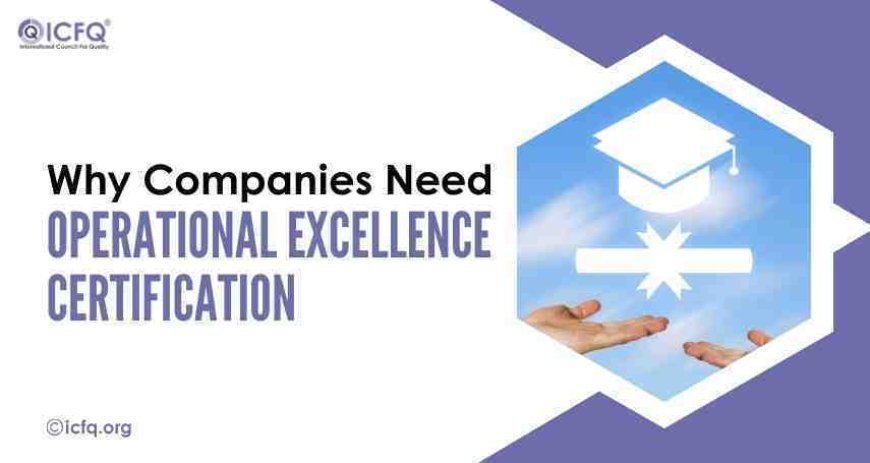
Promoting business success today requires more than just experience. With markets becoming highly competitive and customer expectations rising, companies need structured processes to stay ahead. Operational excellence certification has become the backbone of efficient business operations. From improving productivity to reducing costs and building customer trust, certification plays a vital role at every stage of a company’s growth journey.
Have you ever wondered why some companies consistently deliver high-quality products and services while others struggle? Or why certain brands achieve faster growth and stronger customer loyalty? The answer often lies in their commitment to operational excellence and recognized certification programs.
What is Operational Excellence Certification?
Operational excellence certification is a formal recognition awarded to organizations that demonstrate the ability to systematically improve processes, reduce inefficiencies, and deliver high-quality products or services. Unlike generic business awards, this certification validates that a company follows structured methodologies to optimize its operations.
Key elements typically include:
-
Process standardization and improvement
-
Employee engagement and training in best practices
-
Continuous performance measurement and monitoring
-
Risk management and compliance adherence
Obtaining this certification signals to stakeholders, employees, customers, and investors that a company is committed to sustainable excellence and continuous improvement.
Key Elements of a Successful Operational Excellence Program
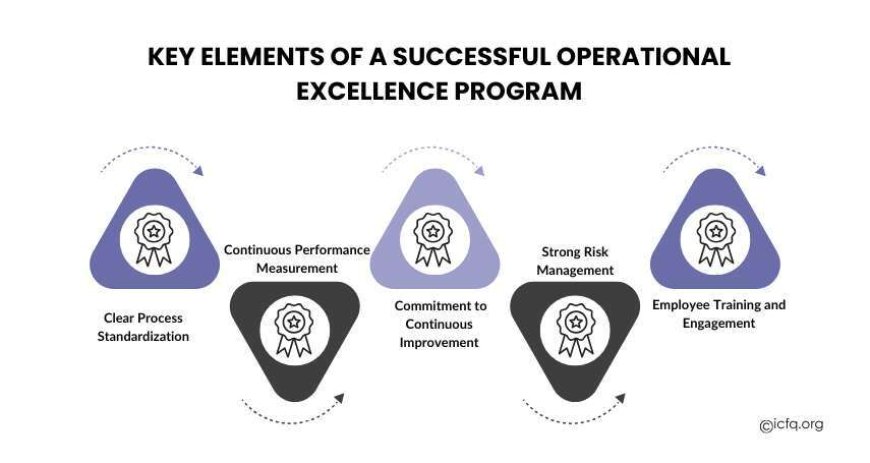
Achieving operational excellence isn’t about doing one thing perfectly, it’s about improving the whole system. Companies that succeed usually focus on a few key elements that keep their processes efficient, consistent, and high-quality. Here’s what matters most:
1. Clear Process Standardization
Every team member should know exactly how to do their job. Standardizing processes using frameworks like Six Sigma reduces errors, avoids confusion, and ensures work is done the same way every time. It’s the foundation of operational excellence.
2. Continuous Performance Measurement
What gets measured gets improved. Companies track key performance indicators (KPIs) to see where they are doing well and where there’s room for improvement. Regular monitoring keeps teams on track and helps catch issues before they grow.
3. Commitment to Continuous Improvement
Operational excellence is a journey, not a one-time achievement. Companies encourage employees to constantly find better ways of working, whether it’s reducing waste, speeding up processes, or improving quality. Small improvements over time add up to big results.
4. Strong Risk Management
Every business faces risks, whether it’s financial, operational, or compliance-related. A successful program identifies potential risks early and builds safeguards to prevent them from causing major problems.
5. Employee Training and Engagement
Employees are the heart of operational excellence. Providing proper training, clear roles, and growth opportunities motivates staff to take ownership of their work. Engaged employees spot inefficiencies, suggest solutions, and help the company achieve its goals faster.
Why Companies Should Invest in Operational Excellence Certification
This certification shows that a company has strong, reliable systems to improve work, save time, and deliver better results consistently.
1. Makes Work Easier and Faster
When a company gets certified, it learns to organize processes clearly and remove unnecessary steps. Employees know exactly what to do, mistakes are fewer, and projects get done faster.
2. Helps Save Money and Increase Profits
Wasted resources, repeated work, and errors can quietly drain a company’s money. Operational excellence certification helps identify these gaps and reduce waste.
3. Keeps Customers Happy
Customers notice when products or services are consistent and reliable. Certification proves that a company is serious about quality and follows proven processes. This builds trust, encourages repeat business, and strengthens a company’s reputation.
4. Supports Employee Growth
Operational excellence certification isn’t just about processes, it’s about people, too. Employees get proper training, clear roles, and guidance to improve how they work. Programs like Green Belt certification introduce staff to basic Six Sigma principles, making them feel valued, encouraging ownership, and motivating them to suggest improvements.
5. Gives a Competitive Advantage
In a crowded market, having an operational excellence certification sets a company apart. It signals to clients, investors, and partners that the business follows recognized best practices. It also helps when expanding globally because certified processes are trusted worldwide.
How to Achieve Operational Excellence Certification
Getting an operational excellence certification may seem like a big task, but breaking it into clear steps makes it manageable. Companies that follow a structured approach see better results and long-term benefits. Here’s how to do it:
1. Assess Your Current Processes
Before making improvements, understand where your company stands. Identify strengths, weaknesses, and areas that need better efficiency. This assessment gives a clear starting point for your certification journey.
2. Set Clear Goals and Plans
Once you know your gaps, define measurable goals. Decide what success looks like faster delivery, fewer errors, lower costs, or higher customer satisfaction. Create a detailed plan outlining steps, responsibilities, and timelines.
3. Train Your Employees
Certification is not just about systems, it’s about people, too. Train employees on process standards, best practices, and how to contribute to continuous improvement. Engaged and informed employees are essential for lasting operational excellence.
4. Implement Best Practices
Apply standardized workflows, tools, and methods to improve efficiency. Encourage teams to follow the new processes consistently. Small improvements, when done regularly, can lead to significant gains over time.
5. Monitor and Measure Performance
Track key performance indicators (KPIs) to see how well the new processes are working. Regular monitoring helps catch issues early and allows for adjustments to keep improving.
6. Conduct Internal Audits
Before seeking official certification, run internal audits to ensure processes meet the required standards. Identify gaps, correct them, and prepare documentation to show compliance.
How Technology Supports Operational Excellence Certification
Technology plays a big role in helping companies achieve and maintain operational excellence certification. The right tools make processes easier, faster, and more accurate, allowing businesses to focus on growth and quality. Here’s how technology helps:
1. Streamlines Processes
Software tools can automate repetitive tasks, track workflows, and ensure that standard procedures are followed consistently. This reduces human errors and saves time, making operations smoother.
2. Real-Time Performance Monitoring
Digital dashboards and analytics tools allow companies to monitor performance in real time. KPIs can be tracked continuously, helping teams spot issues quickly and take corrective action before small problems become big.
3. Supports Continuous Improvement
Technology makes it easier to collect data, analyze trends, and identify areas for improvement. This ensures that companies don’t just maintain standards but constantly enhance their operations.
4. Enhances Employee Training
Learning management systems (LMS) and online training tools help employees stay updated on best practices and certification requirements. Well-trained staff are essential for achieving and maintaining operational excellence.
5. Facilitates Documentation and Compliance
Certification requires proper documentation of processes, audits, and improvements. Using tools and frameworks like Lean Six Sigma, technology simplifies record-keeping, ensures transparency, and makes audits faster and more accurate.
6. Encourages Collaboration
Cloud-based tools and communication platforms allow teams from different departments or locations to work together seamlessly. Collaboration ensures that everyone is aligned with operational excellence goals.
Getting certified is not just a one-time achievement; it’s a step toward continuous improvement and long-term success.
If you want your business to operate more efficiently, improve quality, and grow with confidence, it’s time to consider operational excellence certification.
Contact us today at [email protected] to learn how your company can achieve operational excellence and stay ahead of the competition.






